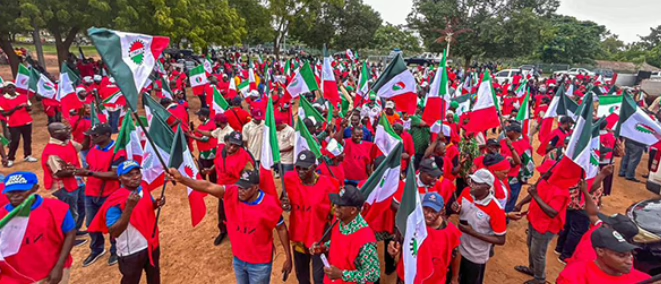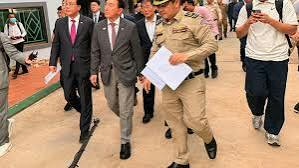The Nigeria Labour Congress (NLC) and federal civil servants have called for an urgent review of the national minimum wage, insisting that the current ₦70,000 is no longer realistic amid rising inflation and skyrocketing living costs.
The demand comes after several states across the country announced upward reviews of their minimum wages, with some exceeding the ₦70,000 benchmark signed into law by President Bola Tinubu in July 2024.
In Imo State, Governor Hope Uzodinma recently approved an increase of the minimum wage to ₦104,000, alongside an adjustment of the entire salary structure for state workers. Lagos, Rivers, Bayelsa, Niger, Enugu, Akwa Ibom, Ogun, Delta, Benue, Osun, and Ondo States have also raised their minimum wages, with Lagos set to hit ₦100,000 by 2025.
Acting General Secretary of the NLC, Benson Upah, told the News Agency of Nigeria (NAN) that the impact of galloping inflation has rendered the ₦70,000 wage “grossly inadequate,” leaving workers unable to cover basic needs such as food, housing, electricity, and transportation.
“The truth is that ₦70,000 is not sustainable under the present economic situation. Workers are under immense pressure, and unless the government responds quickly, the crisis of survival will only worsen,” Upah said, hinting that labour might consider industrial action if dialogue with the Federal Government fails.
Similarly, President of the Association of Senior Civil Servants of Nigeria (ASCSN), Shehu Mohammed, described the wage crisis as a “wake-up call” for the Federal Government. He noted that labour initially demanded a ₦250,000 living wage during negotiations, arguing that ₦70,000 “only takes a worker to the gate of the office, not back home.”
Workers who spoke to NAN shared harrowing accounts of economic hardship, with some stating that their salaries are exhausted within days. “By the time I pay transport to work and buy food, nothing is left. Rent and school fees are almost impossible to cover,” said Mrs. Kemi George, a civil servant.
Others, like Mr. Obi Chimaobi, called for an immediate wage review to at least ₦150,000, warning that “the average worker is already in debt before the end of the month.”
Labour leaders also urged the government to complement wage increases with policies to reduce the cost of living, including affordable housing, subsidised transportation, and improved healthcare.
Economic experts argue that an upward review of wages would boost consumer spending, stimulate local businesses, and revitalise the economy — ultimately benefiting both workers and the government.











Leave a Reply